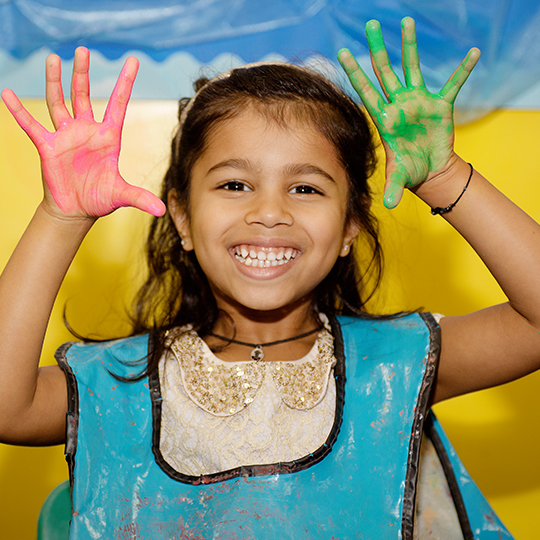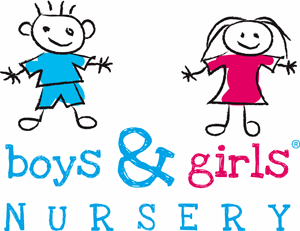Blog - Nursery Talk

Top Tips for Starting School
Starting a new job is daunting and for little ones moving on to school it can also be a bit scary! Here at Boys & Girls Nursery we implement the following to help ease the transition:
- We spend lots of time reading books and talking about what happens on the first day at school. Our home corners are turned into pretend classrooms complete with school uniforms for the children to practice dressing themselves
- Each child is given a job to help out around the rooms to encourage independence – they all enjoy being ‘helper of the day’
- The children enjoy lots of role play where they take it in turns to be the teacher, taking the register and setting rules of the classroom
- Having a ‘P.E session’ in the garden regularly helps everyone understand the importance of health and exercise
- To help our Pre-Schoolers understand that they will be leaving nursery we throw them a leavers party to show them that moving on to big school is a positive and happy time
All of our Pre-School parents are also emailed a ‘top tips for starting school’ document before they leave us containing the following information:
Communication:
Talk with your child about the changes that are about to happen – reinforce that it’s a positive change and that they’re going to have fun! Family conversations are a great way to encourage communication allowing children to express themselves and share their thoughts.
Morning routine:
Your morning routine will probably be changing so doing a practise run of the new routine may be beneficial. This will give your child, as well as you, the confidence that you know what to do, when and the timescales involved, allowing you to make any adjustments if needed ready for the big day.
Journey:
It’s a good idea to either walk or drive to school a few times if you can so your child is used to the journey before the first day.
Diet:
Try to avoid the sugar filled cereals at breakfast time, things such as porridge, Weetabix and granola are much better alternatives and a great start for the little ones. A wholesome meal is needed in the evening to refuel children after a busy day at school, ensure it’s a good balance of protein, carbohydrates and vegetables. Sitting down for a meal is a great opportunity to bring the family together.
Lunchtime:
At lunch, you are going to want to make sure they are eating a healthy and well-balanced diet. If you have opted for pack lunches make sure they have healthy snacks and can confidently open wrappers. You can make it fun by getting your child to help you pack them. If you have opted for school dinners, it would be good practise to sample a few at home so your child knows what to expect when they go to school.
Exercise:
Alongside healthy eating, your child should be active for at least 3 hours per day. This could be anything from garden games and fun in the park to more strenuous activities such as bike rides and swimming. For more information on healthy diets and exercise contact your local Children’s Centre or your health visitor who will be able to give you lots of advice.
Sleep:
Introducing a sleep routine will have a positive impact on your child. Children need sleep to process information they have learned and it also helps them to concentrate. Remember the first few weeks will be tough on them and sleep will be very important.
Reading:
Books will become a huge part of school life – your child will be given reading books to bring home, for them to read with you. These books should form part of your daily routine, whether it is in the morning, after lunch or in the evening. Reading at bedtime is a great opportunity as it helps the child relax after a day of school work and activities. Taking your child to the library is beneficial, this is a free service offering lots of lovely children’s books and should be a weekly stop. By doing these trips to the library and reading to your child 20-30 minutes at a time will help your child’s imagination grow and instil a love of learning.
Sharing:
This is important not only in class but for the playground too. Sharing is a skill children need for play and learning throughout childhood. Help your child to understand by playing lots of simple turn taking games both inside and outside.
Making friends:
Look out for opportunities for your child to play with other children, particularly if you know anyone who has a child that will be in the same class. Meeting in the park during the summer holidays is a great way to get out in the fresh air and make new friends.
Independence:
Independence in children is having the confidence to try something for themselves. Children should have a degree of independence when they start school, including using the toilet, washing their hands, putting shoes on, blowing their nose and getting dressed. Alongside practising these skills there are various things you can do to at home to promote independence. Let your child make decisions whether it be what they wear or what they have for dinner, allow them to help prepare snacks and practise cutlery skills. Encourage your child to play with other children and recognise their own belongings.
Uniform:
Allow your child time to explore their new uniform, taking them shopping to choose it is a great way to get your child excited about school – encourage them to get dressed themselves ready for the school day.
Tidy up:
Children will have to take part in ‘tidy up time’ at school. Encourage them to help you at home by picking up a few toys and tidying away their books when they have finished reading.
Manners:
Manners and politeness are things that have to be taught and the best way to do this is by demonstrating them yourself!
Speak out:
Remind your child to tell the teacher:
If they have any worries
If they need extra help
If they need the toilet

